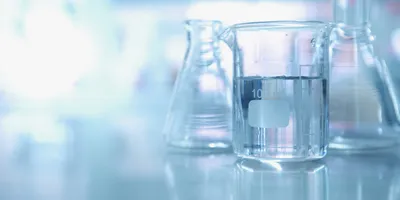Introduction: The Role of Glassware Washers in Laboratory Efficiency
In today’s high-performance scientific environments, maintaining spotless and contaminant-free laboratory glassware is non-negotiable. Whether in analytical chemistry, life sciences, or pharmaceutical research, clean glassware underpins data accuracy and experimental integrity. This is where a specialized laboratory glassware washer becomes indispensable. More than just a cleaning appliance, it’s a critical component of laboratory infrastructure.
Standard and large-capacity washers are widely available, yet selecting the right model is more complex than it appears. Variables such as energy efficiency, glassware compatibility, cycle time, and water purity must all be aligned with the specific needs of your lab. This guide explores these criteria in depth, helping you choose the most suitable washer for your laboratory applications.
How to Evaluate Energy and Water Efficiency in Laboratory Glassware Washers
Operational Water Use
One of the first and most impactful considerations is water consumption. Laboratory glassware washers vary significantly in this regard. "There is a huge difference in operation costs between a washer that takes nine gallons to fill and one that takes 15 gallons to fill," notes Ken Austin, Manager of Miele Professional Laboratory Division. Since a single wash cycle typically requires five to six fills, this translates into notable differences in:
- Total water usage
- Detergent requirements
- Energy needed to heat the water
- Wastewater management and treatment costs
Delay-Start Features
For labs looking to cut utility costs, selecting a washer with a delay-start option offers an advantage. This feature allows units to run during off-peak hours, when electricity is cheaper, enhancing budget efficiency.
Reducing Lab Downtime with Faster Glassware Washer Cycle Times
Cycle duration is another practical concern, particularly in high-throughput laboratories where time is as valuable as accuracy. The overall cycle length is influenced by multiple variables, including the type of heating system used, the method of water circulation, the spray mechanism design, and the efficiency of water filtration.
Cycle lengths typically range from one to three hours. For facilities processing a large volume of glassware daily, choosing a washer with optimized cycle times can significantly reduce bottlenecks and boost overall productivity.
Key technologies that contribute to faster yet thorough cleaning include:
- Fast-cycle programs: Pre-programmed wash cycles designed for common glassware types that balance speed with cleaning efficacy.
- Efficient heating elements: High-performance heaters that reduce water heat-up time without compromising temperature stability.
- Advanced spray arm mechanisms: Strategically placed and engineered spray arms that enhance detergent and water distribution, ensuring all surfaces are reached efficiently.
- Pre-rinse and intermediate rinse cycles: Features that reduce contamination carryover and cut down final rinse requirements.
- Rapid drying systems: Integrated high-efficiency drying options that use filtered air or vacuum drying to eliminate residual moisture quickly.
By integrating these features, a laboratory glassware washer becomes a powerful tool for maximizing daily throughput. Laboratories can run more cycles per shift, reduce manual cleaning tasks, and maintain consistent results, all while keeping workflows uninterrupted and efficient.
Choosing a Glassware Washer Compatible with Diverse Laboratory Equipment
Accommodating a Variety of Labware
From volumetric flasks and graduated cylinders to Petri dishes and beakers, glassware diversity in the lab demands adaptable washing systems. Jenny Sprung, Product Manager at Labconco Corporation, emphasizes that, "Variations in the types of glassware a washer can accommodate now and in the future is an important consideration."
A well-designed washer should include:
- Spindle racks for narrow-neck glassware
- Open racks and baskets for wide-mouth vessels and specialty items
This ensures that as your research evolves, your washer remains relevant.
Purpose-Built, Not Repurposed
It's crucial to understand that not all washers labeled for lab use meet the rigorous standards of scientific work. "A home dishwasher with a DI rinse cycle cannot be compared with a commercial grade washer designed for laboratory applications," warns Austin. True laboratory washers are engineered with:
- High-grade materials: Chambers and water paths capable of handling 18 megohm, 95ºC pure water
- Specialized wash programs: Tailored for organic and inorganic residue removal
- Industrial-grade pumps: Offering up to four times the circulation of domestic models
Achieving Reliable Results with Customizable Cleaning Programs
Glassware in laboratories comes into contact with a wide range of substances, from volatile organic solvents and corrosive acids to complex biological media. Each of these materials requires tailored cleaning protocols to prevent contamination, ensure reproducibility, and maintain the integrity of subsequent experiments.
For example, flasks used in protein crystallography may retain trace buffer salts that require high-temperature rinses to dissolve and remove effectively. In contrast, plastic centrifuge tubes, often used in molecular biology workflows, can warp or degrade at elevated temperatures, making lower heat cycles essential.
To address such variability, a modern laboratory glassware washer must offer:
- Multiple temperature settings: Enabling users to select from a wide thermal range (typically from ambient to 95ºC), critical for matching the thermal tolerance of different materials.
- Customizable cycle times: Allowing labs to adjust the duration of pre-wash, main wash, rinse, and drying phases depending on the contamination level. For example, heavily soiled fermenters may require prolonged wash cycles, whereas analytical glassware might only need a quick rinse.
- Specialized cleaning modes for different materials: Washers should include preset programs optimized for specific use cases—such as a low-temperature mode for plastics, high-pressure mode for baked-on residues, and eco-mode for lightly soiled labware.
These features ensure that labs can clean glassware to the precise standards demanded by their workflows without risking damage to sensitive equipment or wasting resources.
Validating Cleanliness in Laboratory Glassware Washers
Verification and Monitoring
Simply cleaning isn’t enough; verification is key. "Request that glassware cleaned in your washer has been analyzed for cleanliness, such as with EPA methods for residual metals, volatile and semi-volatile compounds," advises Sprung.
Top-tier washers offer built-in monitoring capabilities, including:
- Temperature tracking
- Chemical dispensing verification
- Water flow and pressure logging
These diagnostics allow the washer to alert users if a parameter falls out of range, ensuring consistent and validated cleaning outcomes every cycle.
Additional Laboratory Glassware Washer Features to Consider
Noise Levels
In increasingly open-plan or compact lab settings, sound levels matter. Particularly for large-capacity models, be sure to evaluate the washer’s dBA rating. "Some brands are very loud," says Austin, which can affect comfort and concentration in the lab.
Construction Durability
Premium lab washers are constructed with durable materials such as stainless steel interiors and corrosion-resistant components to withstand high-purity water and caustic detergents.
Conclusion: Maximize Lab Efficiency with the Right Glassware Washer
Choosing the right laboratory glassware washer is more than a logistical decision—it’s a strategic investment in lab productivity, data integrity, and operational efficiency. By focusing on your lab’s specific requirements—from energy usage and cleaning precision to noise levels and equipment durability—you can select a system that not only meets current demands but scales with future laboratory applications.
In a landscape where research timelines are tight and accuracy is paramount, having the right glassware washer isn’t optional. It’s essential.
Frequently Asked Questions (FAQ)
What is the most important feature in a laboratory glassware washer?
The most important feature depends on your lab’s specific needs, but energy efficiency, customizable cleaning programs, and compatibility with diverse glassware types are key to maximizing performance.
Can a laboratory glassware washer clean both glass and plastic labware?
Yes, high-quality washers offer adjustable temperature settings and specialized cycles to accommodate both glass and plastic materials without risk of damage.
How does a lab washer improve operational efficiency?
By automating the cleaning process, reducing cycle time, and ensuring consistent results, a lab washer helps free up technician time and maintain workflow continuity.
Are lab dishwashers the same as commercial dishwashers with DI rinse?
No. True laboratory washers are specifically engineered for scientific applications, featuring robust construction, higher circulation rates, and wash programs tailored for lab contaminants.












